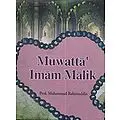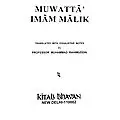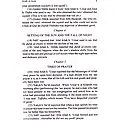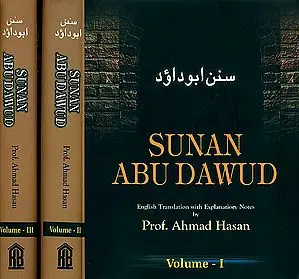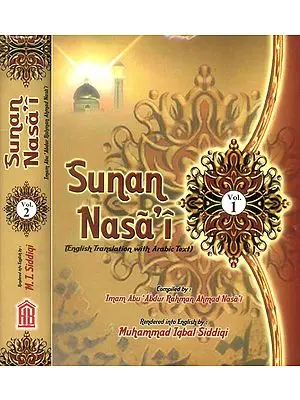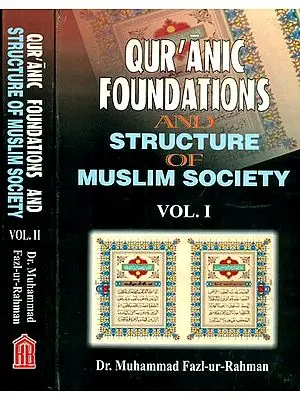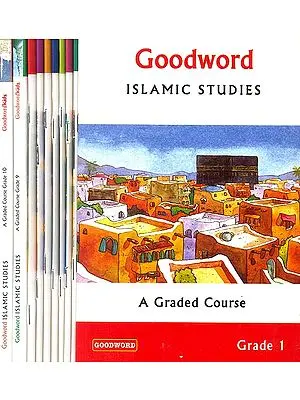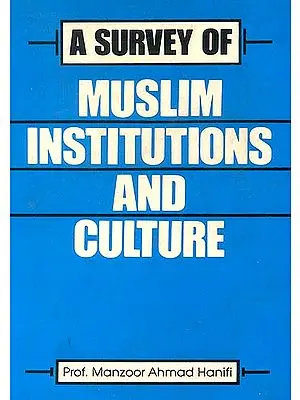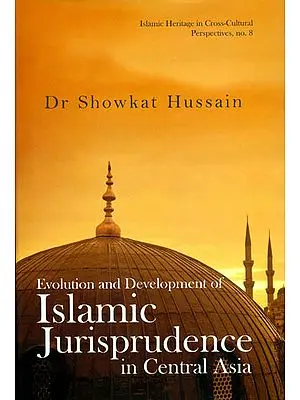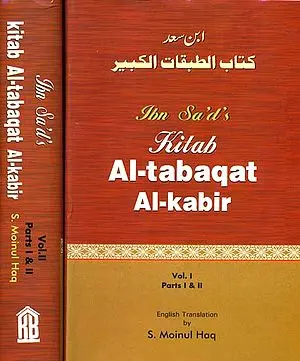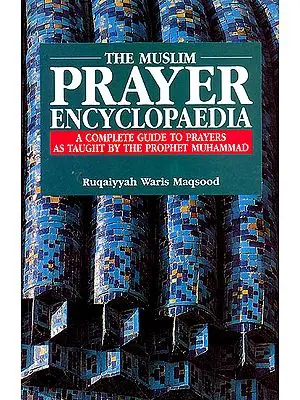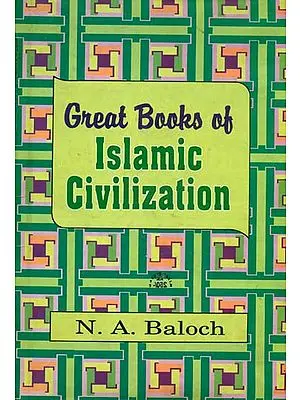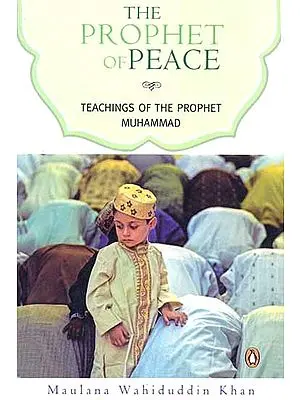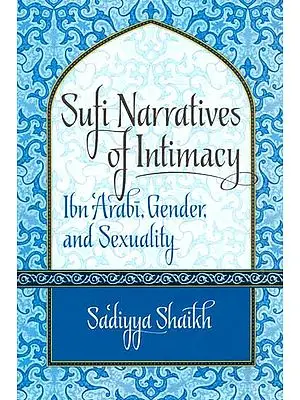Muwatta Imam Malik
| Item Code: | NAH170 |
| Publisher: | KITAB BHAVAN |
| Author: | Prof. Muhammad Rahimuddin |
| Language: | Arabic Text with English Translation |
| Edition: | 2010 |
| ISBN: | 8171510973 |
| Pages: | 482 |
| Cover: | Hardcover |
| Other Details | 10 inch x 7.5 inch |
| Weight | 930 gm |
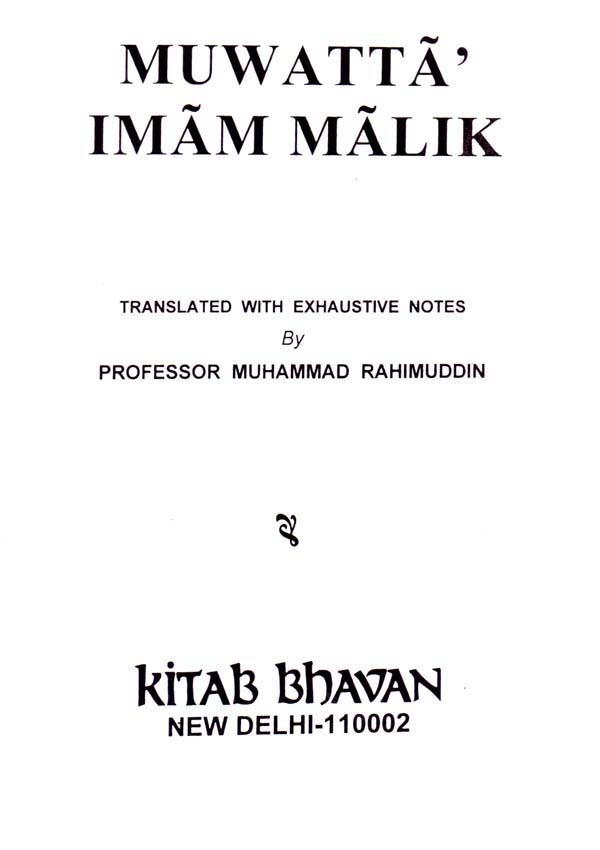
About the Book
Compiled during the reign of
Mansur, the second. Abbasid Caliph, Muwatta’ Imam Malik is regarded as the most authentic book on Hadith. Imam Malik passed his
entire life in Madinah and, therefore, had direct
access to the most reliable authorities on Hadith because most of the leading
companions and their successors live and died there and narrated traditions.
The Muwatta is based on the traditions narrated by
them and juristic verdicts given by them, and thus it deals only with such Ahadith as have a bearing on
juristic verdicts.
Preface
Muwatta’
of Imam Malik, compiled during the early abbasid
period, is regarded by some scholars, including Shah waliyullah, as the most authentic book on Hadith. The juristic verdicts in Muwatta reflect the practice of the Medinese and the consensus of the Medinese
scholars.
After the demise of the Holy Prophet (may peace be
upon him, many of his Companions settled in the conquered provinces. Some of
their successors collected and codified Hadith.
For example, Ibn Jarih in Makkah,
Awza I in Syria, Hammad in Basrah, Haitham in Wasit, Ma’mar in the Yemen, Ibn Mubarak in Khurasan and Jarir b. Hamid in Rayy collected Hadith.
But none of
these collections could compare with the Muwatta’
of Imam Malik, who passed his whole life in Madinah
and, therefore, had direct access to the most reliable authorities on Hadith, because most of the leading
Companions of the Holy Prophet (may peace be upon him) and their successors
lived and died in Madinah and narrated traditions
from the Holy Prophet (may peace be upon him). The Muwatta of Imam Malik
is based on the traditions narrated by them and the Juristic verdicts given by
them.
The word “Muwatta’
“ literally means the trodden
or beaten path In his book, Musawwa,
Shah Waliyullah says that “trodden path” or “beaten path” means
the path followed by eminent religious authorities. In other words, it means
those verdicts which have been discussed by all religious scholars and about
which there is complete agreement. According to Maulana
Sulaiman Nadvi, “Muwatta’ “ means that trodden or beaten path which has been trodden
upon by all the Companions of the-Holy Prophet (may peace be upon him), or, in
other words, it means the agreed practice of the Companions of the Holy Prophet
(may peace be upon him).
Before Imam Malik
finalised his book, the Muwatta’ contained
about ten thousand traditions of the Holy Prophet (may
peace be upon him), but since Imam Malik exercised
great care in selecting Hadith (traditions), he omitted
eight thousand traditions. In its final form, the Muwatta’ contains only about two thousand ahadith (traditions). Since the Muwatta’ deals only with such ahadith as have a bearing on juristic verdicts, it omits many chapters
and headings found in the Sahihs of
Imam Bukhari, Imam Muslim, Tirmidhi,
and others. Muwatta’ has been narrated from Imam Malik in thirty different ways. Of these, sixteen are
famous. Four narrations, those by Yahya, Ibn Bukair, Abu Mus’ab and Ibn Wahb, are most authoritative, but Yahya’
s narration surpasses them all in popularity and fame.
Imam Malik ‘ s jurisprudence (fiqh)
produced
lasting effects on the entire Muslim world. His disciples spread in all the
provinces of the Muslim Empire. It is true that Imam Abu Hanifah’s
disciples were scattered in the Hijaz, Persia and Transoxania, but they did not reach Africa and Spain. Imam Awza’i’s fiqh (jurisprudence)
won popularity in Spain, but it did not benefit the people of Iraq and Persia.
On the other hand, Imam Malik’ s disciples carried his juristic learning to all corners
of the Muslim world.
The Muwatta’ of
Imam Malik was compiled during the reign of Mansur,
the second Abbasid Caliph. After he was installed as Caliph in 136 A.H., Mansur
made his first Pilgrimage to Makkah. He visited Madinah where he was received by leading scholars and men
of eminence. Sufyan Thawri,
Sulaiman Khwass and Imam Malik also came to greet him. When Mansur saw Imam Malik, he addressed him saying: “I have become disgusted
with the differences of the jurists on Islamic law in different regions of the
Empire. There is nothing of juristic learning in Iraq. The Syrians are’ known
for their ardent love for jihad. There
is little learning among them. All juristic knowledge and scholarship is
centred in Hijaz and you are the leader of the
scholars of Hijaz. I wish that your book, Muwatta , may be kept in a prominent place in
the Ka’bah, so that all the people should refer to it
on juristic questions. I also wish that copies of the Muwatta’ may be circulated in all parts of the Empire so that all
juristic verdicts may conform to it.” But Imam Malik
expressed his disagreement with the opinion of Mansur. He said’: “The
Companions of the Holy Prophet (may peace be upon him)
settled in all provinces of the Empire. Their juristic opinions and verdicts
command respect and reverence of jurists in different regions of the Empire and
the people of these regions follow their juristic opinions. Under these
conditions, the people should not be forced to follow the opinions of a single
jurist who is not infallible, after all, and may commit errors.”
Another incident of the same kind shows the sturdy
independence of mind of Imam Malik and his refusal to
submit to the wishes of the governmental authority. Although Mansur was very
kind to the Imam, the latter never recognised the legitimacy of his government.
Once he issued a fatwa that the
caliphate belongs rightfully to Nafs Zakiyya, a descendant of the Holy Prophet (may peace be upon him). The people objected saying that they
had sworn fealty to Mansur, Imam Malik said : “Mansur has coerced you into doing this and the Shari fah does not regard as valid any
act done under coercion. There is a hadith (tradition
of the Holy Prophet) that if a man is forced to divorce his wife, the divorce
would be invalid.” On hearing this, Ja’
far, the Governor of Madinah, asked the people to
renew their oath of fealty to Mansur and ordered Imam Malik
not to issue any fatwa declaring that a divorce obtained by force or under
coercion is invalid as this would strengthen the case of those who regarded as
invalid the oath of fealty obtained by Mansur under coercion. But Imam Malik refused to be browbeaten and continued to give his
verdict against divorce under coercion. For this act of disobedience to the
governmental authority, Imam Malik was flogged in
public until he bled white, but still he refused to bow to the wishes of the
rulers.
Introduction
It is my profound honour to introduce this
posthumous English version of Imam Malik ‘ s Muwatta’ by
late Professor Muhammad Rahimuddin who, to the best
of my fortune, was my reverend father and teacher. As Maulana
Mazheruddin Siddiqi has
written the Preface and discussed Muwatta’, I
will confine myself only to introducing the reverend and learned translator.
Professor Muhammad Rahimuddin
started his career as an Assistant Professor of English of Nizam
College wherefrom he was transferred to Osmania
University and offered the seat of professorship. Many renowned scholars of
international fame had the honour or being his pupils. Suffice to name here Dr Raziuddin Siddiqi and Dr Muhammad
Hamidullah.
While in teens, during his college life, he wrote
English verses and translated verses of Hafiz which were published in 1905 and
1919, respectively.
When Professor Muhammad Rahimuddin
was in the middle of his life his talents changed trend and turned to Islamic
literature. His first contribution was Qur’ani Kirnain (“ Qur ‘anic Beams”), translation
of “Parah-i’Amm” with Tafsir on modern scientific lines
to quench the thirst ‘of particularly the young educated generation, which
desires and demands logical explanation instead of irrationally conventional
elucidations of Qur’anic, verses. In this context it
would be of interest to quote a few lines from the Foreword to Qurani Kirnain by
late Maulana Manazir al-Hasan Gilani:
“Professor Rahimuddin is
my colleague. I only
know him as a versatile and
adept professor of English
having full command over English
literature and
modem trends but very lately it
revealed upon me that
he is an equally eminent
scholar of Islamic literature
and has a
great insight into the universality of the Holy
Qur’an.
He is a Muslim to the core and a votary Mu
‘min
and has a
unique way of approaching to the mysteries
of the
Holy Qur’an.”
After
this publication a number of books on Islam and Hadith were transformed into English by Professor Muhammad Rahimuddin. The English version of “Sahifah-i-Hammam
d. Munabbih (by Dr. Hamidullah)
was very much acclaimed. English translation of al-Din al-Qayyim is another
outstanding specimen of his translations.
With
the collaboration of Dr. Hamidullah, Introduction to Islam was published
which contains invaluable articles by Professor Muhammad Rahimuddin.
During
his last days he translated “Parah-i-’ Amm” and wrote its “Tafsir”-on quite modern lines-on the insistence of Maulana Manazir al-Hasan Gilani, which is still in
manuscript.
This
translation of Muwatta’
is his last contribution. He had revised
but a little portion of it when he was summoned by Almighty Allah, may Allah
rest him in peace!
Contents
|
|
PREFACE |
iii |
|
|
INTRODUCTION |
vii |
|
1. |
KITAB AL-SALAT |
1-106 |
|
2. |
KITAB AL-JANA’IZ |
108-117 |
|
3. |
KITAB AL-SIYAM |
120-131 |
|
4. |
KITAB AL-I’TIKAF |
134-135 |
|
5. |
KITAB AL-ZAKAT |
136-149 |
|
6. |
KITAB AL-HAJJ |
150-202 |
|
7. |
KITAB AL-JIHAD |
203-218 |
|
8. |
KITAB AL-NADHR WA’L-AIMAN |
220-223 |
|
9. |
KITAB AL-DHABA’I |
225-226 |
|
10. |
KITAB AL-SAID |
227-229 |
|
11. |
KITAB AL-AQIQAH |
231-231 |
|
12. |
KITAB AL-DAHAYA |
233-236 |
|
13. |
KITAB AL-NIKAH |
237-250 |
|
14. |
KITAB AL-TALAQ |
252-277 |
|
15. |
KITAB AL-RADA |
280-284 |
|
16. |
KITAB AL-ITQ WA’L-WALA |
285-291 |
|
17. |
KITAB AL-MUKATAB |
292-293 |
|
18. |
KITAB AL-MUDABBIR |
294-294 |
|
19. |
KITAB AL-BUYU |
295-315 |
|
20. |
KITAB AL-QIRAD |
316 |
|
21. |
KITAB AL-MUSAQAT |
318 |
|
22. |
KITAB AL-KIRA’ AL-ARD |
319 |
|
23. |
KITAB AL-SHUF’AH |
320 |
|
24. |
KITAB AL-AQDIYAH |
321-323 |
|
25. |
KITAB AL-RAHN |
325-341 |
|
26. |
KITAB AL-FARA’ID |
342-345 |
|
27. |
KITAB AL-UQUL |
346-355 |
|
28. |
KITAB AL-QASAMAH |
356 |
|
29. |
KITAB AL-HUDUD |
358-363 |
|
30. |
KITAB AL-SARQAH |
366-370 |
|
31. |
KITAB AL-ASHRABAH |
372-374 |
|
32. |
KITAB AL-JAMI |
376-440 |
|
|
INDEX |
441 |
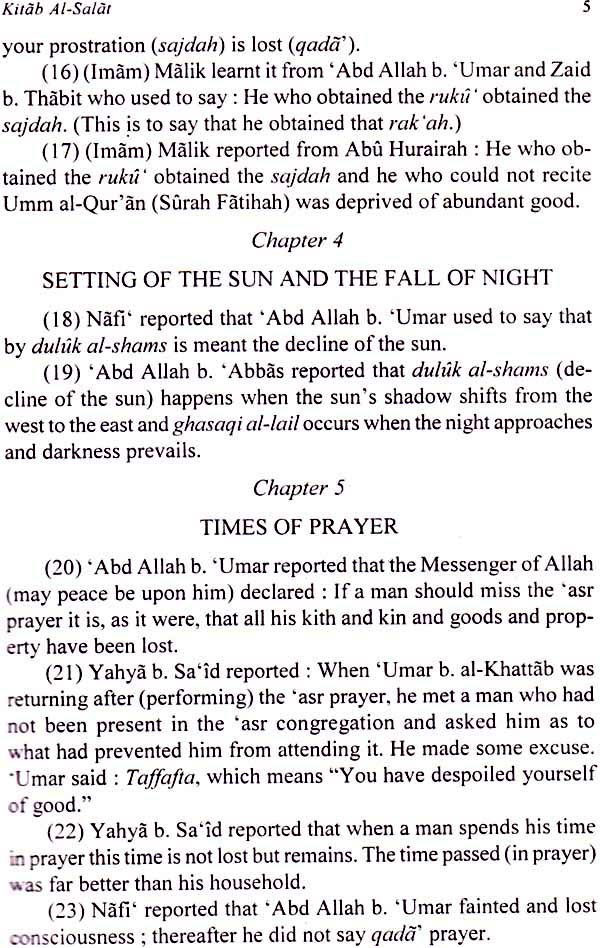
-
Q. What locations do you deliver to ?A. Exotic India delivers orders to all countries having diplomatic relations with India.
-
Q. Do you offer free shipping ?A. Exotic India offers free shipping on all orders of value of $30 USD or more.
-
Q. Can I return the book?A. All returns must be postmarked within seven (7) days of the delivery date. All returned items must be in new and unused condition, with all original tags and labels attached. To know more please view our return policy
-
Q. Do you offer express shipping ?A. Yes, we do have a chargeable express shipping facility available. You can select express shipping while checking out on the website.
-
Q. I accidentally entered wrong delivery address, can I change the address ?A. Delivery addresses can only be changed only incase the order has not been shipped yet. Incase of an address change, you can reach us at help@exoticindia.com
-
Q. How do I track my order ?A. You can track your orders simply entering your order number through here or through your past orders if you are signed in on the website.
-
Q. How can I cancel an order ?A. An order can only be cancelled if it has not been shipped. To cancel an order, kindly reach out to us through help@exoticindia.com.
